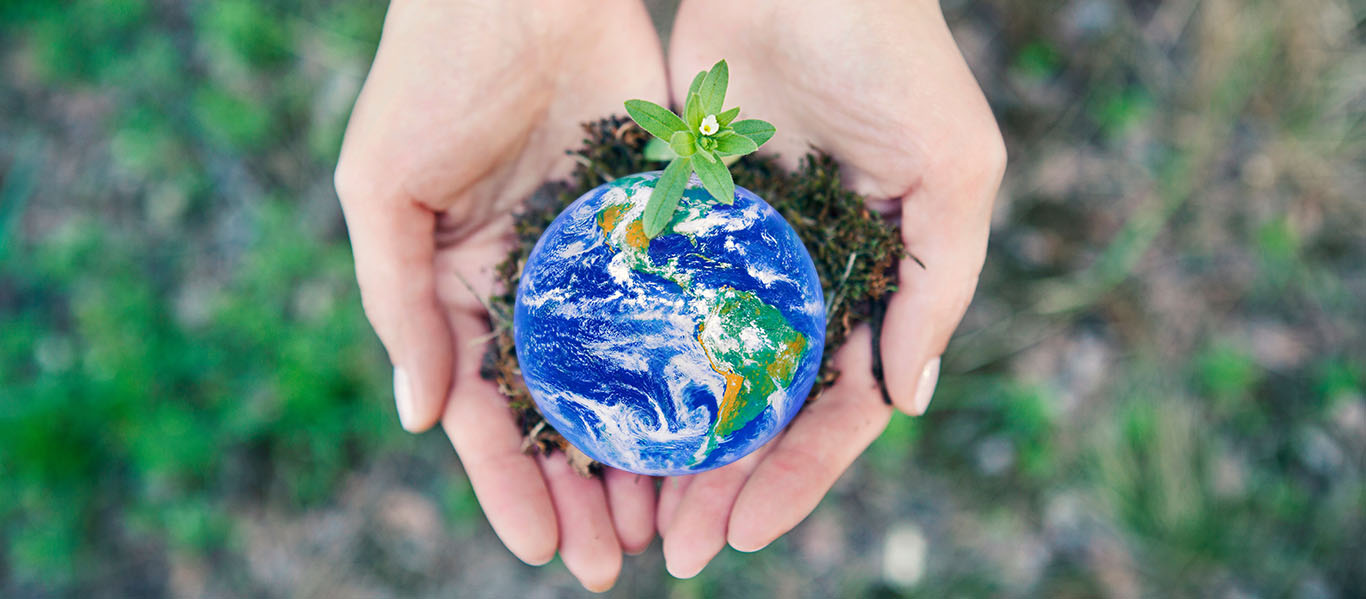This Earth Day, the Universities of Wisconsin recognizes the contributions of everyone working to improve the environment, including graduates and students in our Sustainable Management bachelor’s, master’s and certificate programs, and the Biodiversity Conservation and Management master’s and graduate certificate programs. Our commitment to the environment includes making continuing education as accessible as possible to prepare the next generation with the skills and knowledge to tackle these issues in business, conservation, and beyond.
Fifteen years ago, the University of Wisconsin launched the online Bachelor of Science in Sustainable Management to respond to the demand for working professionals who are knowledgeable about sustainability issues and able to make informed business decisions leading to sustainable outcomes. Since then, the program has expanded to include a master’s degree in sustainable management. More than 500 alumni of the Sustainable Management programs have gone on to address various sustainability issues in their communities and organizations.
This past fall, a master’s degree in Biodiversity and Conservation Management was also launched in partnership with UW-Green Bay, named “Eco U” in the early 1970s, to prepare working professionals to manage complex conservation issues by focusing on key biodiversity conservation principles and skills, communication skills with diverse audiences, and leadership and collaboration skills. The program features three stackable graduate certificates allowing students the opportunity to gain skills and credentials while on their path to earning a master’s degree, or alternatively, specialize in just one area by pursuing a single graduate certificate.
Earth Day 2024 will be celebrated in different ways across the world on Monday, April 22. However, this day is special in Wisconsin not only because of our educational commitments–it’s because we are connected to its founder, Gaylord Nelson. Nelson, a “leading figure in the fight against environmental degradation and social injustice in the 20th century,” who served as Wisconsin governor and later in the U.S. Senate, created the first Earth Day on April 22, 1970 (Nelson Earth Day, 2024).

A Brief History of the First Earth Day
Nelson recognized the systemic connection between environmental health, social well-being, and economic prosperity (what we refer to as the triple bottom line). “Refusing to accept the notion that economic prosperity is at odds with environmental protection, Nelson pushed programs like Operation Mainstream, which appropriated millions of dollars for the creation of conservation jobs and skills training for the poor and the elderly under the Green Thumb project.” He saw that the fight against environmental degradation also involved people, our communities, and a fight against social injustice (Nelson Earth Day, 2024).
“Environment is all of America and its problems. It is rats in the ghetto. It is a hungry child in a land of affluence. It is housing not worthy of the name; neighborhoods not fit to inhabit.”

In the ten years after 1970, known as the environmental decade, much of the significant legislation needed to protect the environment was enacted into law, including the Clean Air Act, Safe Drinking Water Act, and the creation of the Environmental Protection Agency (EPA).
The influence of the first Earth Day in 1970 is still reverberating in 2024 (Listen to a Forward Sustainably podcast about this with Nelson’s daughter, Tia). Many of the same challenges persist and, in fact, have gained in urgency. Alongside this, new opportunities have emerged to make a real difference in the long-term health of the planet.
Extending the Energy of Earth Day into a Career
Do you want to make a positive impact on the environment while making it a career, instead of just one day of observance? You can choose a path focused on addressing environmental, social, and economic issues. Traditional green jobs are well established in industries such as renewable energy, energy efficiency, natural resource conservation, and waste management, and now opportunities seeking sustainability skills are increasingly found in roles that are not typically considered when one thinks of sustainability careers, like technical sales rep or facilities manager.
Whether you’re interested in slow fashion, energy efficiency, sustainable architecture and design, sustainable operations, or more, there are careers for people who want to make a difference. You can read about some sustainability success stories. Sustainability Manager, a traditional green job, was one of the fastest-growing green jobs between 2016 and 2021, according to the LinkedIn Global Green Skills 2022 report. Find more information about sustainability careers and salaries.
If you’re passionate about solving and managing environmental issues, you may want to consider a career as an environmental scientist, conservation biologist, or forester – all biodiversity careers that are anticipated to grow significantly in the near future. Jobs in the biodiversity conservation field will increase by 8% over the next 10 years, with the majority of jobs concentrated in state and federal government, and scientific consulting services.
“Biodiversity makes our natural world better in the same ways that diversity in our local communities leads to better experiences, ideas, and outcomes. Conservation as a discipline includes many different fields that ultimately work toward a similar goal: to enhance the lands, waters, and environment that we all depend on. Whether you are engaged in agriculture, sustainability, wildlife or fisheries management, or environmental education and outreach, we all work on the same team,” says Amy Carrozzino-Lyon, scientist and program director for the Biodiversity Conservation and Management Program.
Some examples of biodiversity-related occupations include:
- Urban planner
- Forest and conservation worker
- Wildlife conservation worker
- Environmental engineer
- Environmental planner
- Forester
- Soil scientist
- Environmental scientist
- Environmental compliance specialist
(And if you’re interested in both sustainability and biodiversity conservation and management, here’s how to decide which program is right for you.)
“This is indeed an unprecedented moment for the profession … reflective of a mounting climate crisis that requires increasingly bold action. CEOs are more engaged, more companies are expanding their sustainability efforts and the size of their teams, and more commitments are being made to reduce GHG emissions.” —GreenBiz State of the Profession 2022
“Working in the conservation field offers the unique and challenging opportunity to influence tangible outcomes that have benefits for both the natural environment and our communities. Many conservationists get to develop management plans and projects and engage communities in the same places where they live, work, and play, which can be personally rewarding to see your efforts and partnerships in action.”
How Do Your Programs Fit into My Life?
Our programs are 100% online and flexible for students who are working full-time, fulfilling personal obligations, and enjoying everything life has to offer. You can take as many courses as you would like each semester, and you can take time off as needed. Enroll in any semester you choose (spring, summer or fall). From the very first day of the program until graduation, you’ll have a success coach by your side to help answer any questions you may have. Reach out to an enrollment adviser today to learn more.
Learn more about our 100% online degree and certificate programs.![]()
Get Program Guide
Tiny Actions Lead to Big Impact When Done Collectively
What does Earth Day mean to you, your families and friends, our communities, our businesses and beyond in 2024? As we say, tiny actions lead to big impact when done collectively. Your thoughts, your words, and your actions make a difference every day. Let Earth Day be your day to set new intentions, whether that is making small and positive changes in your life, or investing in your education and future career in sustainability or conservation. When you’re ready to take those steps, we are here to support you and welcome you to join our programs and then get out and do this good work in the world.
From all of us at the Universities of Wisconsin, Happy Earth Day!
References
U.S. Environmental Protection Agency









